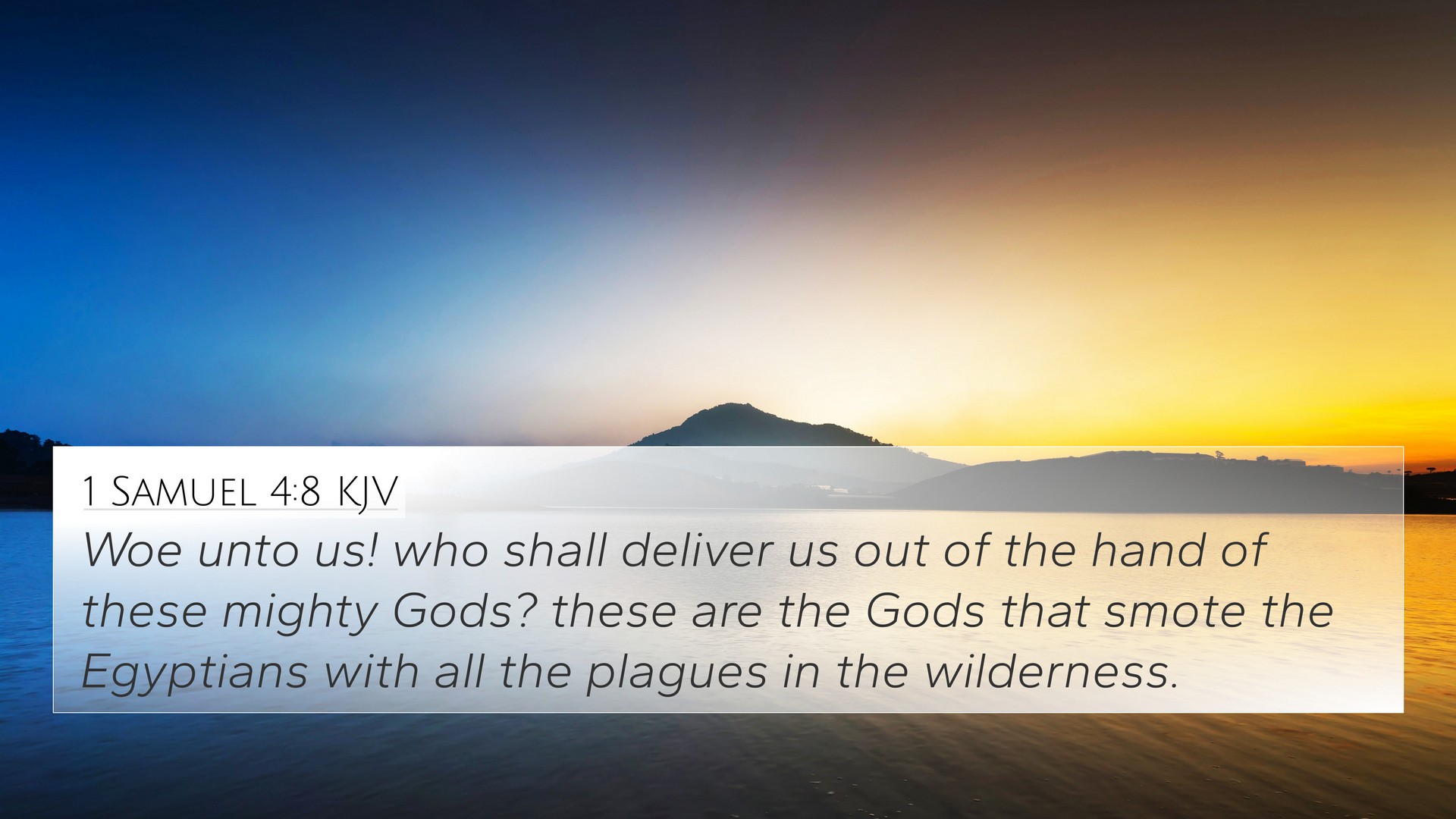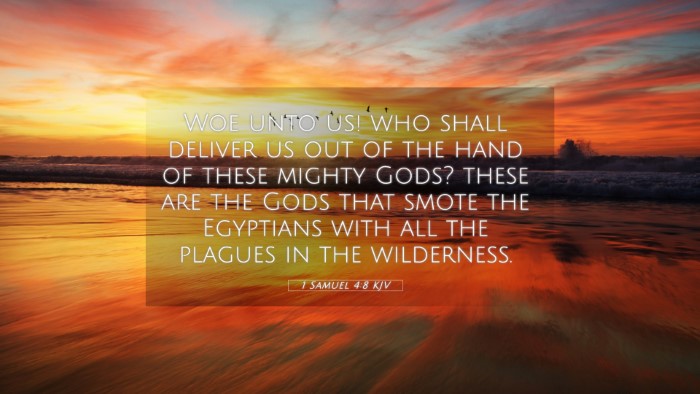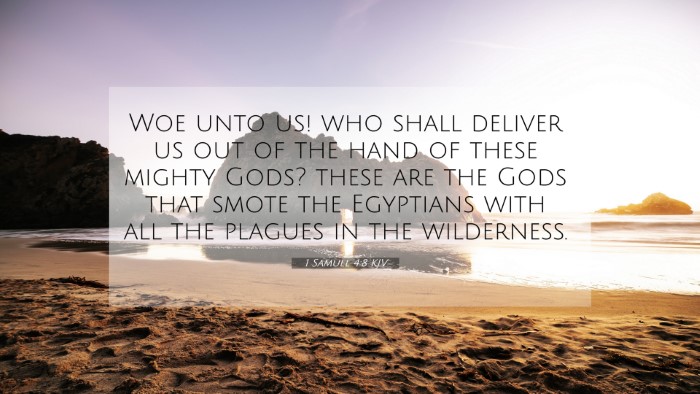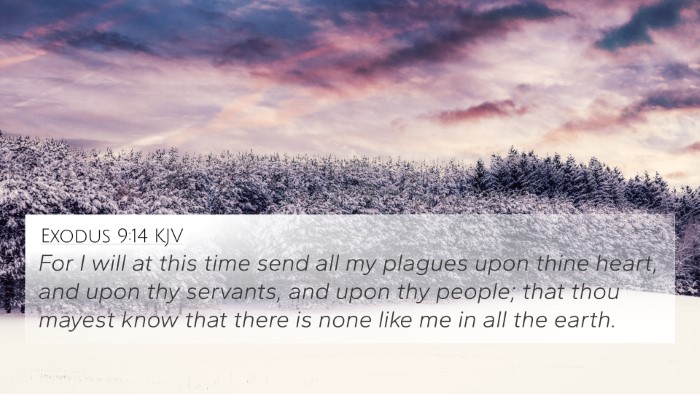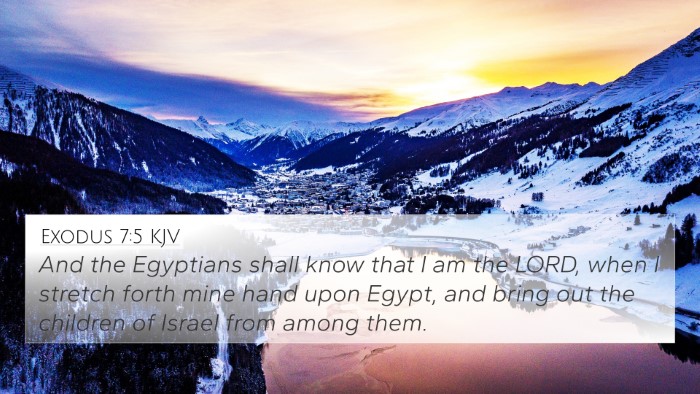Understanding 1 Samuel 4:8
1 Samuel 4:8 states: "Woe to us! Who shall deliver us out of the hand of these mighty gods? these are the gods that smote the Egyptians with all the plagues in the wilderness." This verse captures a moment of dread among the Philistines, echoing their understanding of Yahweh's power and His history of delivering Israel from oppressive forces.
Contextual Overview
The context of this scripture is crucial to appreciating its meaning. The Philistines were in battle against Israel, and the defeat of Israel forces them to reflect on the power they are up against. The reference to the "mighty gods" alludes to the fear they felt, recognizing that the God of Israel had a track record of delivering His people through significant acts, particularly during their Exodus from Egypt.
Interpretative Insights
- Matthew Henry: He notes that the Philistines were acutely aware of the historical acts of God, particularly the plagues upon Egypt. Their realization leads to a sense of panic, acknowledging that they are not merely facing Israel, but the God who defeated one of the mightiest civilizations of the time.
- Albert Barnes: Barnes emphasizes the recognition of divine intervention. The Philistines grasp that they are in a spiritual confrontation, not merely a physical battle. Their fear of Israel’s God points towards a deeper understanding of the dangers they face.
- Adam Clarke: Clarke points out the irony in the Philistines' respect and fear of the God of Israel while simultaneously engaging in battle against His people. This conflict underscores the dichotomy of human pride versus divine power.
Connections and Cross-References
1 Samuel 4:8 can be connected to various other scripture references that explore themes of divine power and the consequences of disregarding God:
- Exodus 12:12: God's power demonstrated through the plagues in Egypt.
- Joshua 2:10: Rahab speaks of God's mighty acts in Egypt and the fear it instilled in the hearts of Canaan.
- Psalm 77:14: Acknowledgment of God's wonders and the power displayed among the nations.
- Romans 1:20: God's invisible qualities and divine nature are made clear through creation, prompting recognition of His power.
- Acts 7:36: Reference to Moses leading Israel out of Egypt, emphasizing the history of deliverance.
- 1 Corinthians 10:1-4: Paul recounts the escape from Egypt and the spiritual significance of the rock that followed them, symbolizing Christ.
- Isaiah 63:12-13: Reflects on the guiding hand of God that led Israel through the Red Sea, showing His might.
- Revelation 15:3: Signifying God’s ultimate victory and the song of Moses, celebrating His deeds among the nations.
- Micah 6:5: A reminder of God's mighty acts during the Exodus, calling Israel to remember His power.
- Hebrews 11:29: Speaking of the faith of Israel in parting the Red Sea, indicating the deep belief in God's power.
Thematic Reflections
This verse poses an invitation to reflect on the sharing of knowledge about God’s power through testimonies of deliverance, and invites readers to consider the current relevance of recognizing divine authority in our own experiences:
- Worship: Recognizing God’s sovereign power can elicit a response of awe and worship from His people.
- Fear of the Lord: A healthy fear of God plays a role in humility and obedience among believers.
- Divine Intervention: Understanding God's past actions encourages faith in present challenges.
- Community Knowledge: Sharing stories of God’s workings inspires faith within the community.
Cross-Referencing Insights
Utilizing cross-references helps uncover deeper connections between biblical texts. For example, examining how themes of deliverance recur across both Testaments enriches our understanding:
- The connection between Exodus and the New Testament where deliverance through Christ parallels the theme of escape from bondage.
- The fear displayed by the Philistines reflects a broader human recognition of divine authority across different cultures and contexts within the Bible.
- The acknowledgment of God's power seen in the Old Testament continues into Christian theology, where Jesus embodies the fulfillment of the deliverance narrative.
Conclusion
1 Samuel 4:8 serves as a powerful reminder of God's enduring power and the acknowledgment of that power by even His enemies. The insights drawn from the commentaries provide a rich tapestry of understanding, while the cross-references offer pathways for further exploration of this significant biblical theme.
As we study this verse alongside other scriptures, we engage in an inter-biblical dialogue that allows us to see how God's character is unchanging and remains a potent force in the life of His people today.
